BTEC A-Z

We've worked on making BTEC as simple as ABC. Below you will find our BTEC A-Z which highlights benefits of a BTEC, take a look and share with your learners, colleagues, and anyone who you believe would benefit from seeing these fun facts.
BTEC A-Z
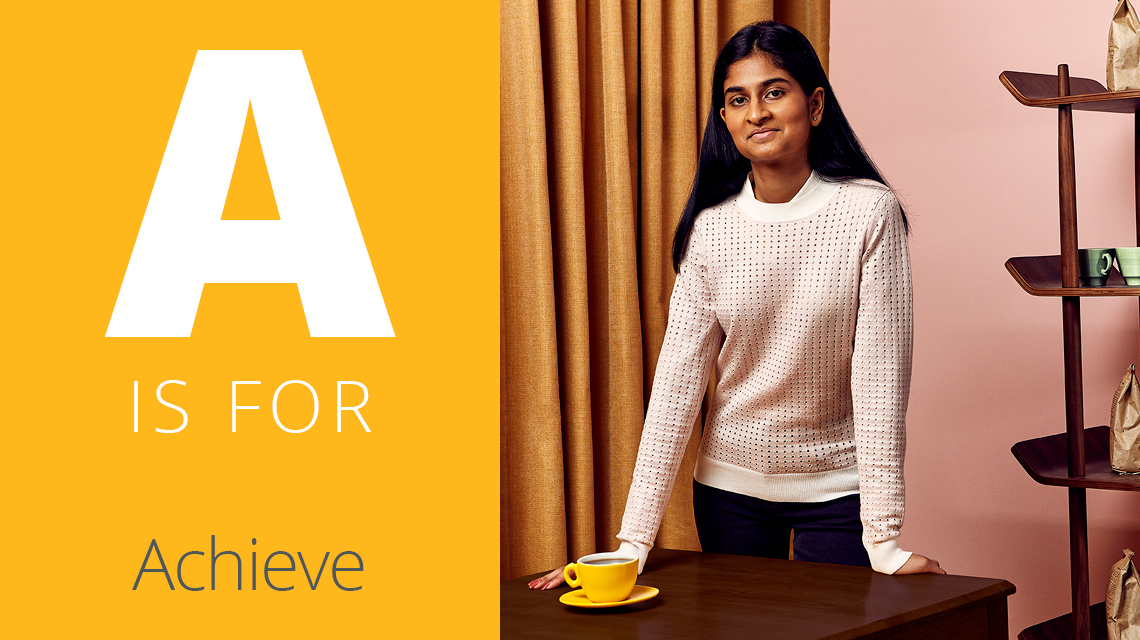
A is for Achieve…
Because BTEC can help you achieve your career goals, whether you’re starting at a Level 2 or 3, like our student of the year 2018 Rachna Udasi, or taking your career to even loftier heights with a Level 4 or 5.

B is for Business
It actually is… that’s what the B in BTEC stands for. There are so many BTEC subjects to choose from but ultimately, they’re all about getting you into business and helping businesses get the skills they need.

C is for Career
Whatever your chosen field, BTEC can help you take each step on the career ladder, giving you the practical experience and skills, that employers are crying out for.
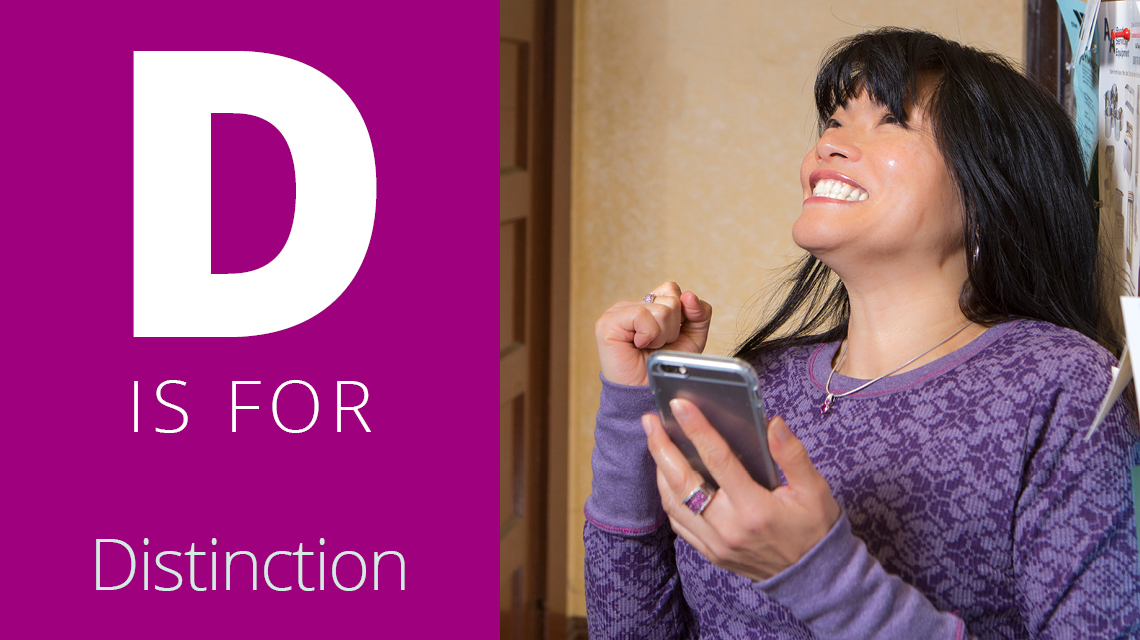
D is for Distinction
BTEC is where lots of people finally come into their own academically – it allows students to hone-in on their interests and talents, with new ways of learning and new ways of showcasing achievement. When passion and commitment collide, you could find yourself getting the kind of grades in your assessments that you only dreamed of, so drive for distinction.

E is for Employability
There’s so much more to employability than book smarts. Employers want team players, critical thinkers, self-starters… and those are just some of the skills you’ll be gaining with BTEC.

F is for Freedom
Freedom to choose your own path, freedom from the narrow confines of purely written assessments, and ultimately freedom to live your life the way you want to – getting paid for doing something you love.

G is for Goal
Sometimes education can feel like an unwelcome obligation. But when you embark on a BTEC you’re making an active choice to learn, to show up, try hard and enjoy working towards your goal of a career that you'll find satisfying and rewarding.

H is for Higher Nationals
BTEC Higher Nationals provide specialist learning at Levels 4 and 5 in over 40 subjects, offering a cost-effective, vocational pathway to higher education. Developed in conjunction with employers, students, and professional bodies, BTEC Higher Nationals offer real experience, opportunities and comprehensive qualifications that will benefit your chosen career.
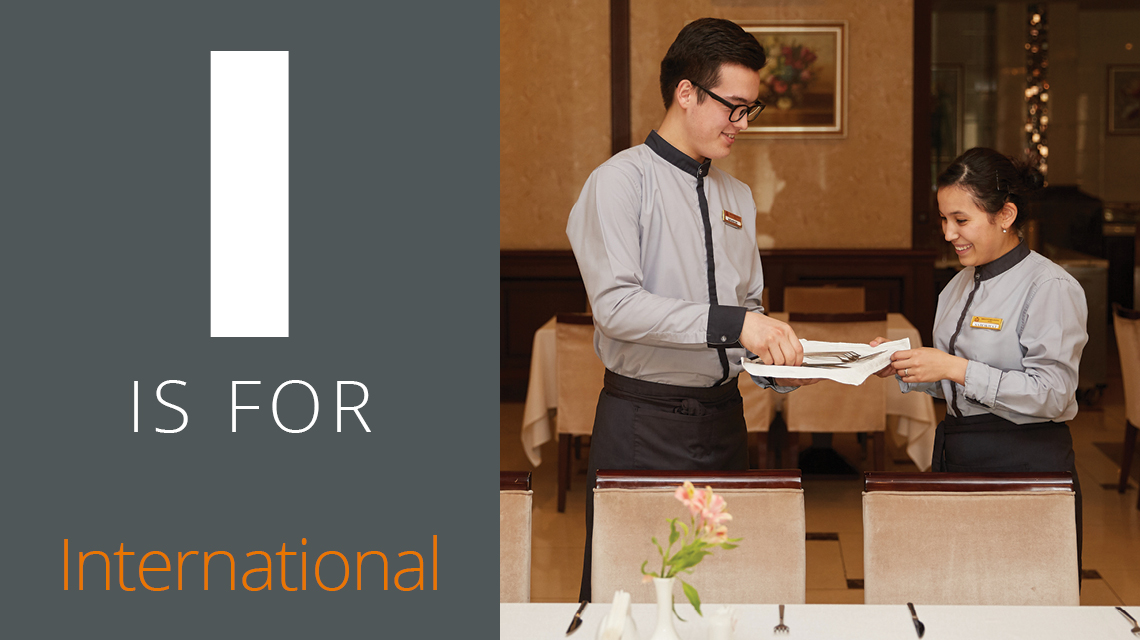
I is for International
Developed in collaboration with employers and teaching professionals from around the world, Pearson BTEC International qualifications are career-focused courses where learners apply knowledge and skills through real-life scenarios, giving them the confidence and employability skills to succeed in their professional lives.

J is for Journey
This could easily have been J is for Job, because after all, we hope BTEC will help you get the one you want… but instead we’ve chosen journey. In today’s age, jobs are changing, with new ones springing up and old ones evolving so that we all must keep pace. That’s why BTEC isn’t just about helping you get to the single fixed point of 'a job' - it’s about giving you the skills to propel you along your career journey as you continue to learn and grow.

K is for Knowledge
K really would have to be for Knowledge! BTECs help you develop focused, specific knowledge of your chosen discipline. Of course, BTEC also helps you develop employability skills and assists with personal growth - but they're for different letters.

L is for Lifelong Learning.
However rapid and intense change has been over the past couple of decades – we’re not done yet! There are some big global trends at play that will continue to transform the way we work and the types of job available (for more on this check out futureskills.pearson.com). Change isn’t a bad thing of course, but it does mean we’re more likely to have to keep updating our skills and continually learning new things. Fortunately, the skills you develop with BTEC, combined with the passion and interest it hopefully nurtures in you for your subject, will stand you in good stead as you not only keep pace but forge ahead with changes in your profession.
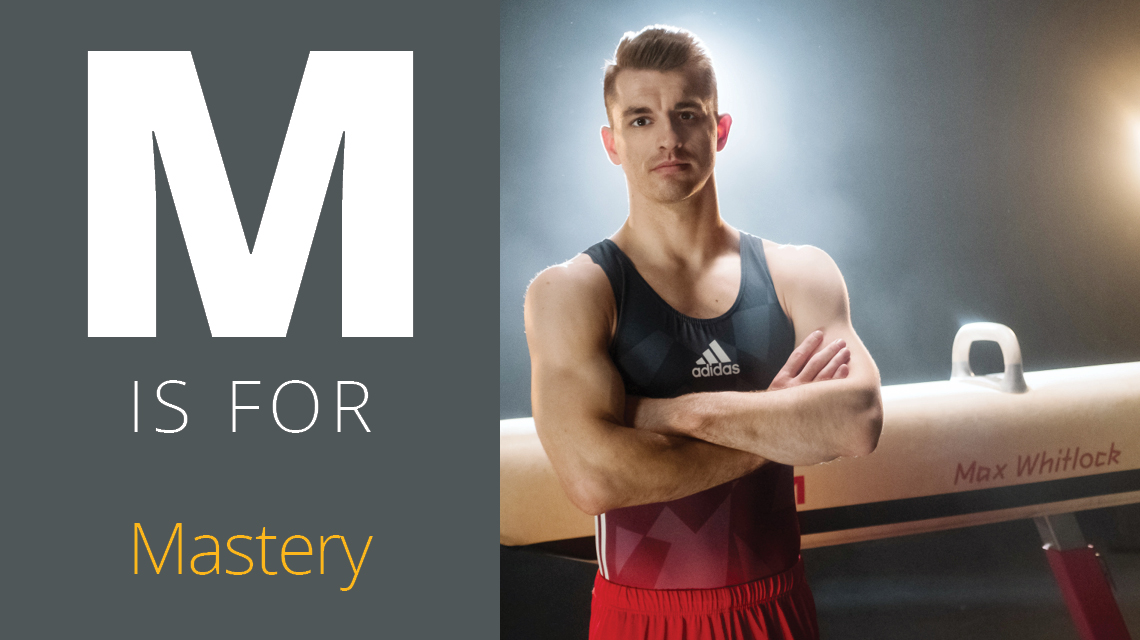
M is for Mastery
With a BTEC, you’re studying to become a specialist, as you progress in ages and stages in your sector, BTEC enables you to develop mastery. Objective by objective, you’re getting closer to becoming an expert in your subject – expertise that will help you get the job you want, of course, but more important, expertise that will make you feel proud of yourself and your accomplishments.
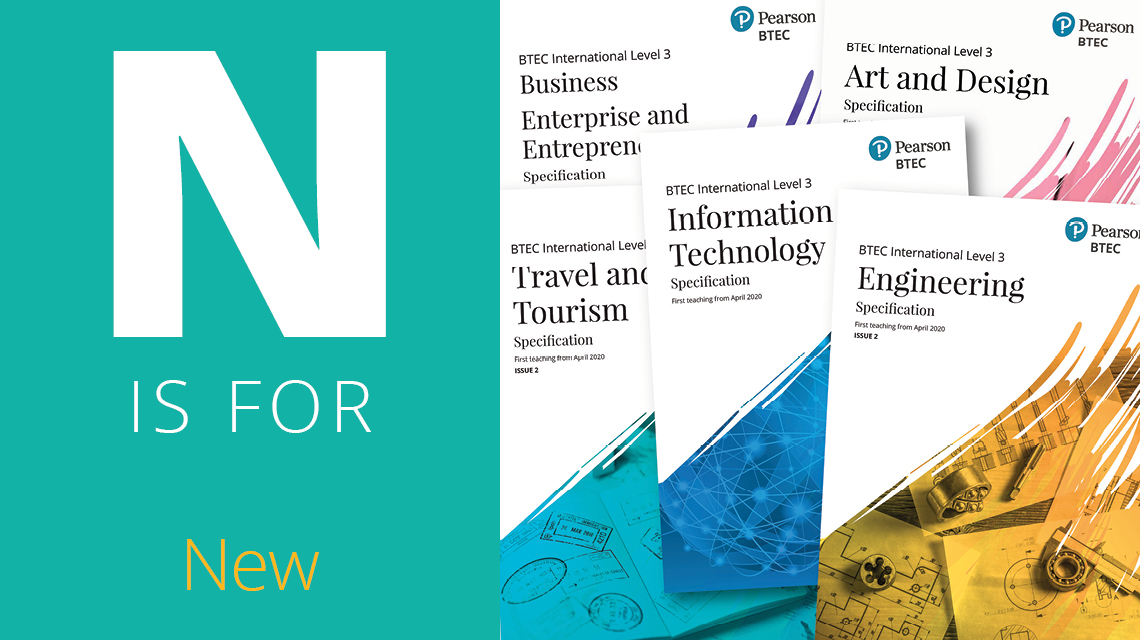
N is for New
We're continually seeking to improve how we work with employers and educators to develop the skilled workers we need to grow the global economy. Developed in collaboration with employers and teaching professionals from around the world, Pearson BTECs new suite of International Level 3 qualifications are career-focused courses where learners apply knowledge and skills through real-life scenarios, giving them the confidence and employability skills to succeed in their professional lives.

O is for Open
Wherever you want to go in life you’ll find that BTEC opens doors. With a BTEC, the door is open both to your dream career and Higher Education - with 1 in 4 university entrants coming from a BTEC background. What’s more, with BTEC Higher Nationals taught in 58 countries around the world, and BTECs being recognised in 70 countries, BTEC can open up international career opportunities.

P is for Passion
Some people may already know what their passion is and choose the pathway to fit it, while for others it might be in following the pathway that they develop the passion. One thing’s for certain though – passion drives success. Every year our BTEC Award winners are those who combine a deep and genuine enthusiasm for their discipline with dedication and a willingness to put in the work.

Q is for Qualification
With BTEC you can study for a range of different qualifications at different levels. Alongside A levels, BTECs are the most widely recognised qualification for admission to higher education in the UK. But not only that, BTEC qualifications are recognised internationally too. Our latest BTEC specifications were developed in consultation with international education and assessment experts as part of Pearson's World Class Qualifications programme - to ensure they are globally relevant and a guaranteed passport to progression.

R is for Results
BTECs are the UK’s most popular career-focused qualifications, offered in thousands of schools and colleges across the country, for more than 35 years. In 2019, 466,000 learners completed qualification. Of these, an overwhelming majority achieved a pass grade or higher last year, with many students demonstrating their talent and commitment by gaining merits and distinctions in their assessments.
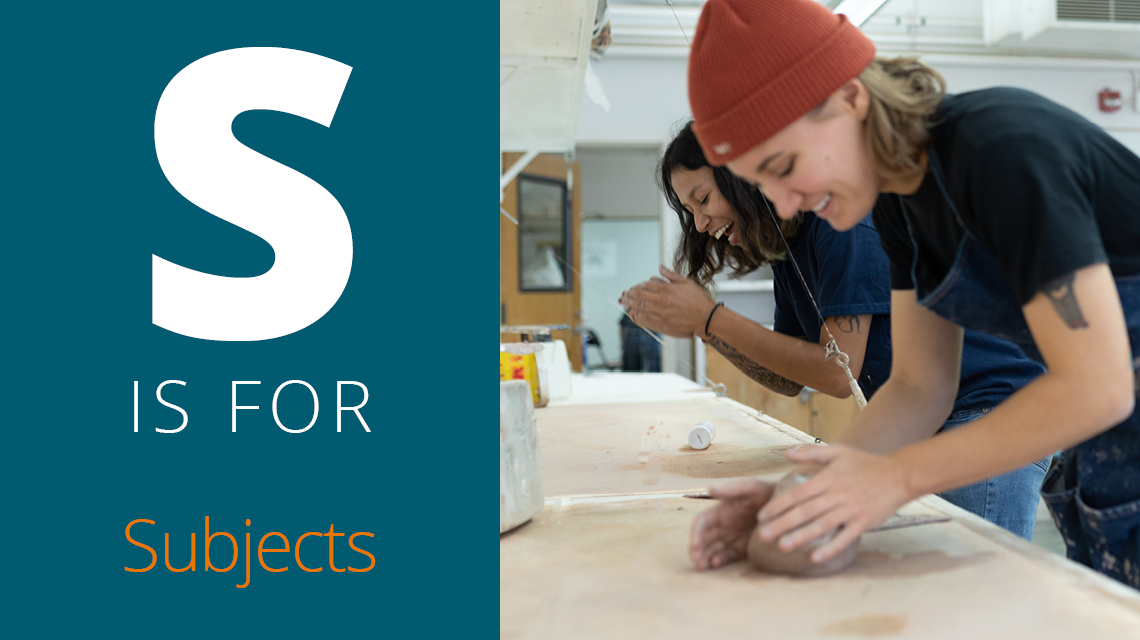
S is for Subjects
If variety is the spice of life, then BTEC contributes greatly to the appeal of professional education! With a huge range of specifications at a variety of levels across the spectrum of vocational subjects, from Agriculture to Travel and Tourism via a huge host of interesting career disciplines, there's something for everyone.
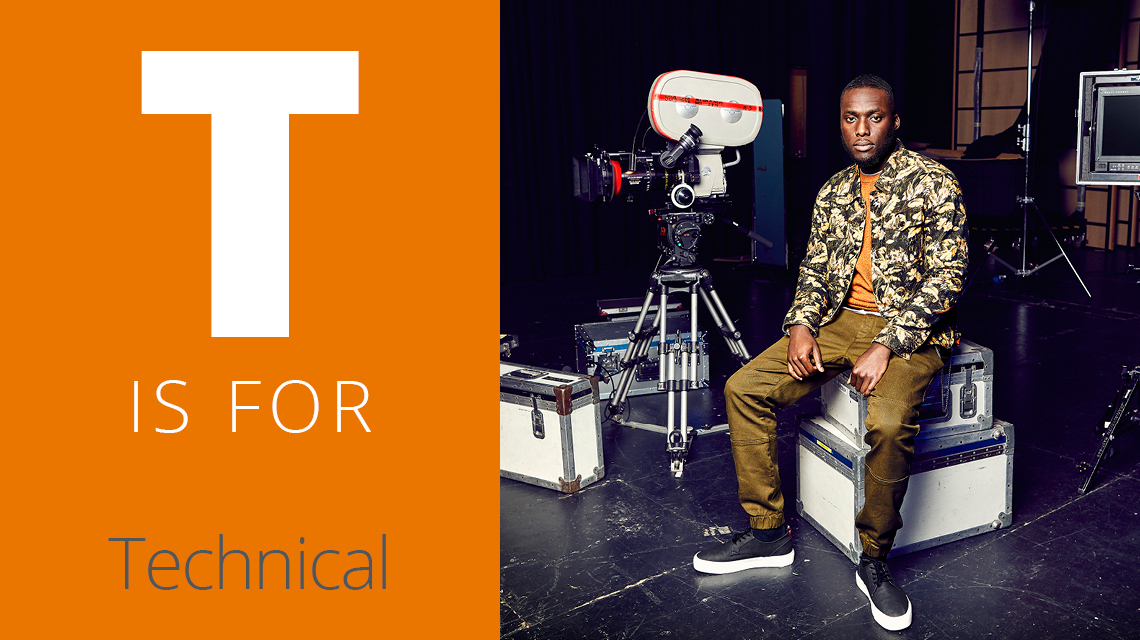
T is for Technical
We sometimes have this notion that technical means hard, detailed, complicated or maybe therefore even boring… but technical just means ‘relating to a particular subject, art, or craft, or its techniques’ or ‘concerned with applied and industrial sciences,’ and that’s a pretty neat summary of BTEC. With BTEC, you’re learning a specialism, preparing for a specific sector or occupation. And that’s a very good thing for your career prospects – giving you not just theoretical knowledge but practical experience and skills.

U is for University
It’s a myth that BTEC is a non-academic route. Nearly 1 in 4 students who got into university in 2018 did so with a BTEC. BTEC rules nothing out… instead it gives you more options suited to you. BTEC is recognised Internationally, both combined with A levels and increasingly as a standalone.
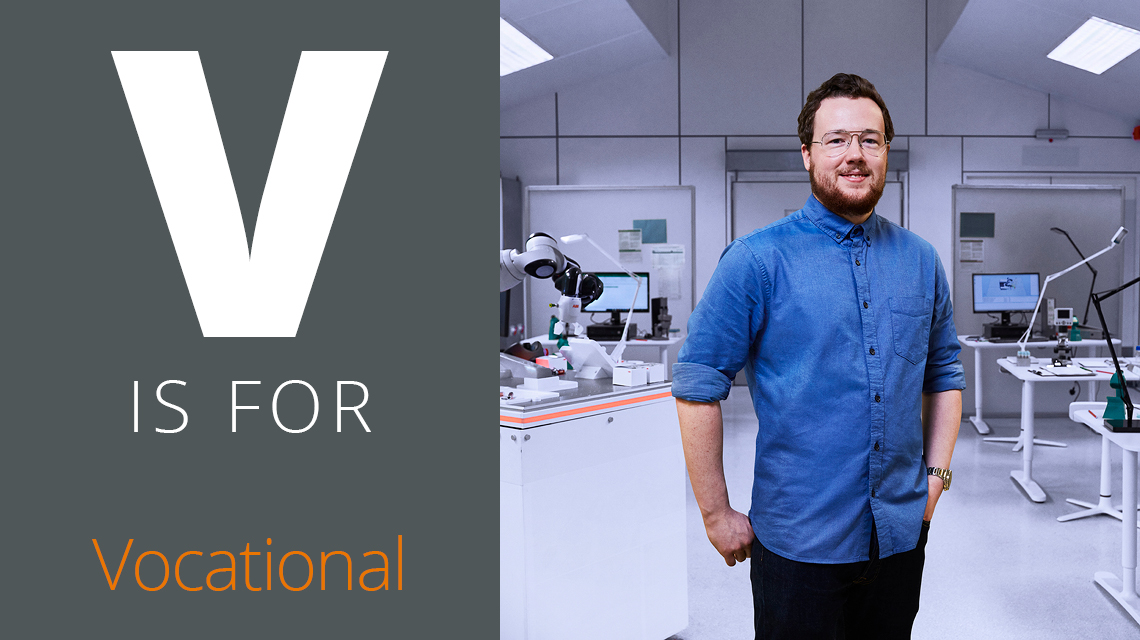
V is for Vocational
To have a vocation, a career path that you’re passionate about and which fulfils you… that’s a marvellous thing! And while there seems to be a lingering stigma around the word ‘vocational’ - as though it’s inferior somehow to a more academic route - in this modern world, there’s a growing realisation that it’s vocational, or a blend of vocational and academic education that’s absolutely needed in order to develop the skills that the country requires.

W is for Work Experience
There are more exciting things on the face of it that W could stand for – like ‘winning’. (And of course, we do think that BTEC students are winning at education actually!). But work-experience is a key part of BTEC and one of the things that sets it apart. It’s the practical application of your newly learned skills that helps embed them, while giving you fodder for your CV… And when you get the job because of the work-experience you already have – then it is kind of exciting after all.

X is for Generation X
Gen Xers are people born between 1965 and 1981. Generation X learners are independent, resourceful, and self-sufficient. They value freedom and responsibility in the workplace and look for jobs that bring flexibility. Gen X has had to consciously evolve with the changing tide of education and technology and the need to continue their technical and professional education is an accepted part of that evolution. Blending traditional learning methods with tech-enabled tools to enhance and solidify learning (BTEC's are a fantastic example) will help them make the most of their development opportunities.

Y is for Young People
BTEC is offered in thousands of schools and Sixth Form colleges in the UK, and internationally! What a brilliant option for many young people who either already have a strong inclination about what they want to do, or for those for whom a purely academic route isn’t the best fit for their talents.

Z is for Zero
ZERO, that is 0.0% of students received an ‘unclassified’ grading across all BTEC Level 3 subjects in 17/18 or 18/19. Now that’s something to be zen about.